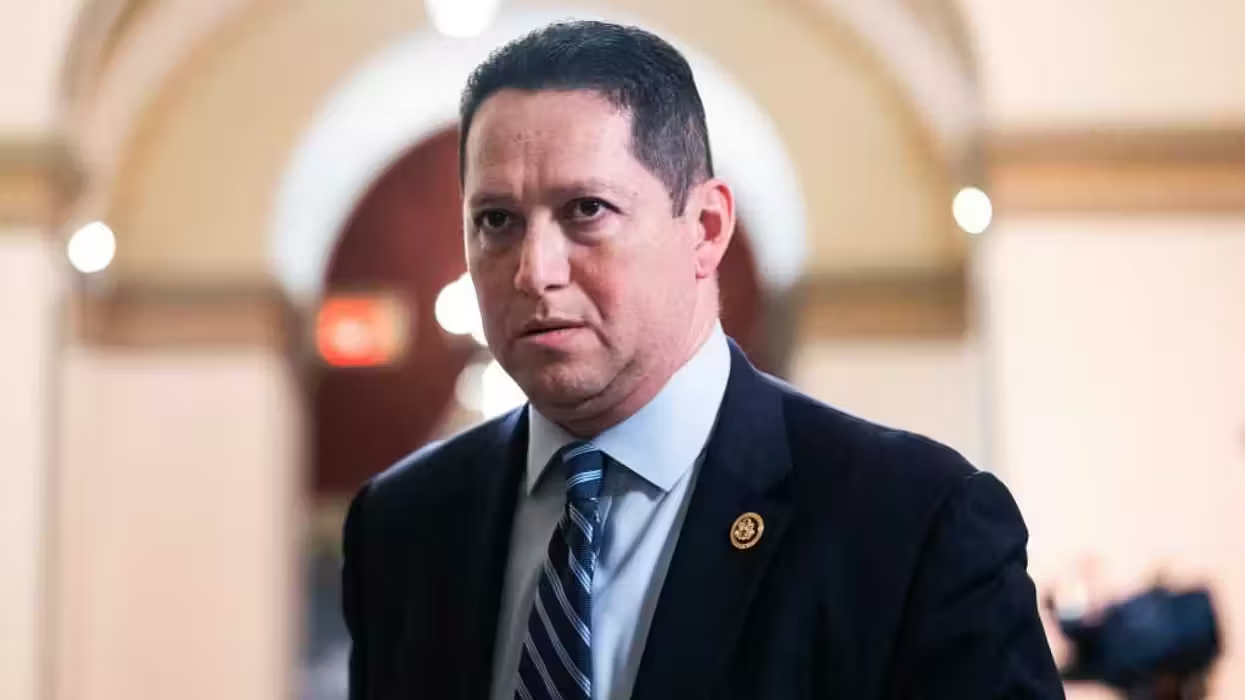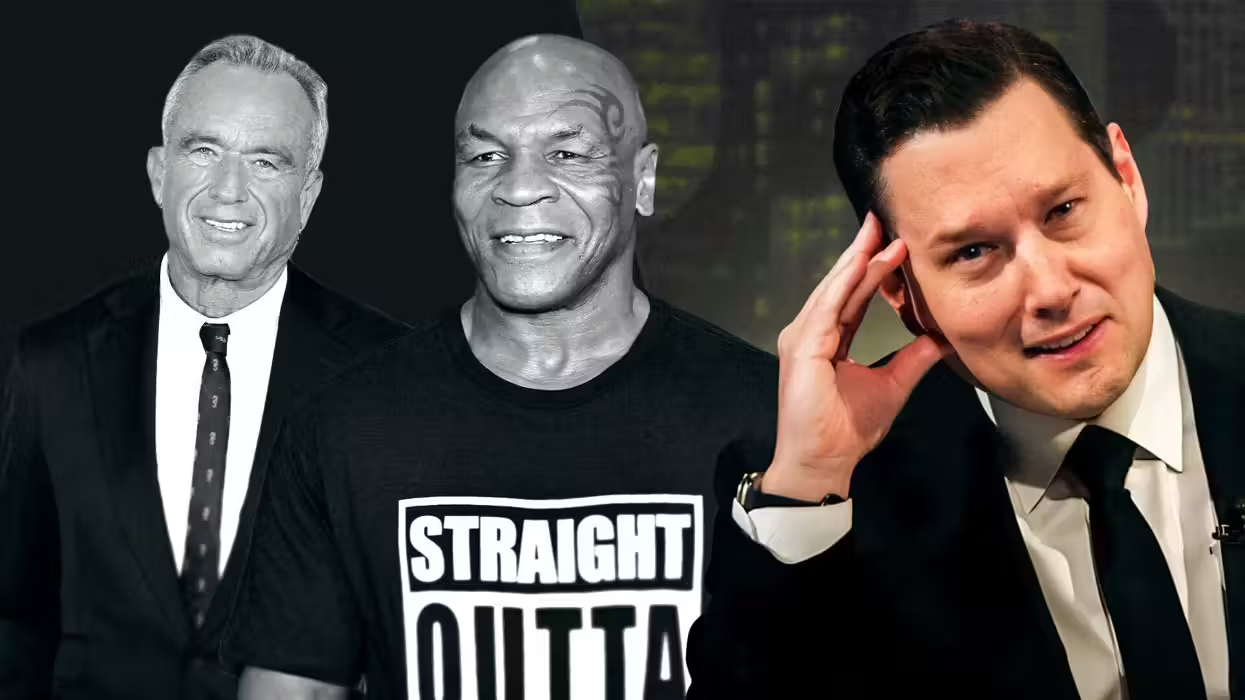
© 2026 Blaze Media LLC. All rights reserved.
"It makes me ill how callously people talk about ripping their clients off."
Scroll down for an update to this story:
Greg Smith, a Goldman Sachs executive, decided that he was through with his company and resigned this morning. But rather than simply giving his two weeks' notice and leaving it at that, he decided that he would do a little something extra.
He decided to write an angry op-ed for the The New York Times, publicly denouncing what he calls Goldman’s culture of corruption. Smith, now a former executive director and head of the firm’s U.S. equity derivatives business in Europe, the Middle East, and Africa, had his op-ed published this morning.
“Today is my last day at Goldman Sachs,” Smith writes, “After almost 12 years at the firm…I believe I have worked here long enough to understand the trajectory of its culture, its people and its identity. And I can honestly say that the environment now is as toxic and destructive as I have ever seen it.”
Smith goes on to write that, unlike when he first joined the firm, Goldman is only interested in profits and its bottom line – even if it's detrimental to the clients' best interests.
“How did we get here?” Smith asks. “The firm changed the way it thought about leadership. Leadership used to be about ideas, setting an example and doing the right thing. Today, if you make enough money for the firm (and are not currently an ax murderer) you will be promoted into a position of influence.”
 Of course, there are always exceptions to the rule.
Of course, there are always exceptions to the rule.
Smith lists the unfortunate but “necessary” things an aspiring Goldman Sachs employee must do to achieve said “position of influence”:
a) Execute on the firm’s “axes,” which is Goldman-speak for persuading your clients to invest in the stocks or other products that we are trying to get rid of because they are not seen as having a lot of potential profit.b) “Hunt Elephants.” In English: get your clients — some of whom are sophisticated, and some of whom aren’t — to trade whatever will bring the biggest profit to Goldman. Call me old-fashioned, but I don’t like selling my clients a product that is wrong for them.
c) Find yourself sitting in a seat where your job is to trade any illiquid, opaque product with a three-letter acronym.
But more than the inside games played by Goldman employees, Smith dislikes what he characterizes as the company's general disdain for its clients.
“It makes me ill how callously people talk about ripping their clients off,” Smith writes. “Over the last 12 months I have seen five different managing directors refer to their own clients as ‘muppets,’ sometimes over internal e-mail.”
So who does Smith blame for bringing Goldman to the brink of ruin via a corrupt corporate culture? Goldman Sachs executives Lloyd Blankfein and Gary Cohn.
“When the history books are written about Goldman Sachs,” Smith writes, “they may reflect that the current chief executive officer, Lloyd C. Blankfein, and the president, Gary D. Cohn, lost hold of the firm’s culture on their watch. I truly believe that this decline in the firm’s moral fiber represents the single most serious threat to its long-run survival.”
As would be expected with a public display of this nature, Smith’s letter has practically gone viral, spawning parodies while the term “Goldman Sachs” is already trending on Twitter, according to Business Insider.
UPDATE -- Lloyd Blankfein and Gary Cohn have officially responded to Smith's NYT op-ed (via Deal Journal):
By now, many of you have read the submission in today’s New York Times by a former employee of the firm. Needless to say, we were disappointed to read the assertions made by this individual that do not reflect our values, our culture and how the vast majority of people at Goldman Sachs think about the firm and the work it does on behalf of our clients....we wanted to remind you what we, as a firm – individually and collectively – think about Goldman Sachs and our client-driven culture.
First, 85 percent of the firm responded to our recent People Survey, which provides the most detailed and comprehensive review to determine how our people feel about Goldman Sachs and the work they do.
And, what do our people think about how we interact with our clients? Across the firm at all levels, 89 percent of you said that that the firm provides exceptional service to them. For the group of nearly 12,000 vice presidents, of which the author of today’s commentary was, that number was similarly high.
...
Our firm has had its share of challenges during and after the financial crisis, but your pride in Goldman Sachs is clear. You’ve not only told us, you have told external surveys...
We are far from perfect, but where the firm has seen a problem, we’ve responded to it seriously and substantively. And we have demonstrated that fact.
It is unfortunate that all of you who worked so hard through a difficult environment over the last few years now have to respond to this. But, our response is best demonstrated in how we really work with and help our clients through our commitment to their long-term interests. That priority has distinguished us in the past, through the financial crisis and today.
Want to leave a tip?
We answer to you. Help keep our content free of advertisers and big tech censorship by leaving a tip today.
Want to join the conversation?
Already a subscriber?
more stories
Sign up for the Blaze newsletter
By signing up, you agree to our Privacy Policy and Terms of Use, and agree to receive content that may sometimes include advertisements. You may opt out at any time.
Related Content
© 2026 Blaze Media LLC. All rights reserved.
Get the stories that matter most delivered directly to your inbox.
By signing up, you agree to our Privacy Policy and Terms of Use, and agree to receive content that may sometimes include advertisements. You may opt out at any time.






